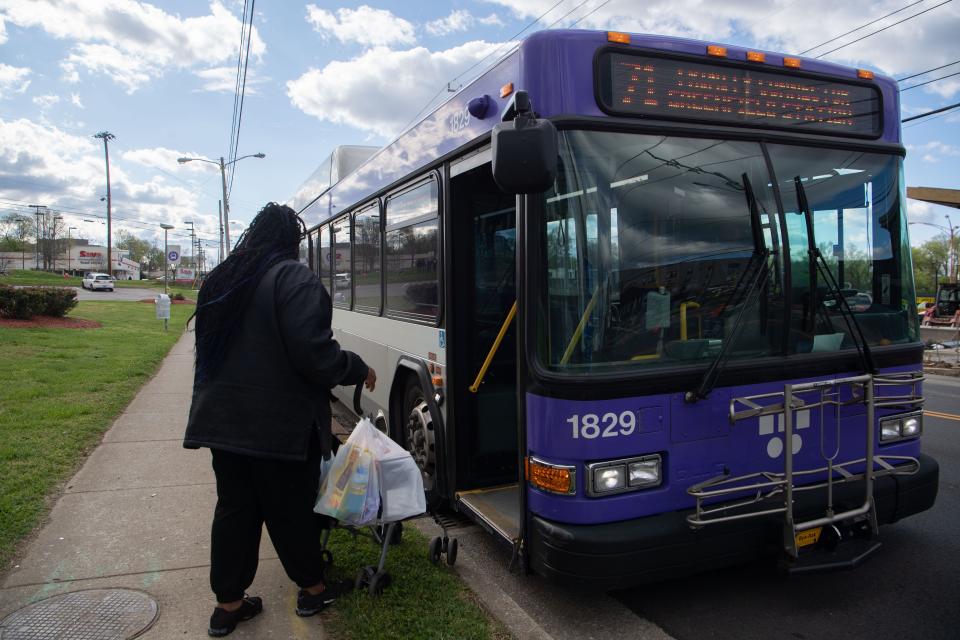Nashville needs better transit, but property, not sales, taxes are the way to pay for it
Nashville has embarked on another campaign to improve our transit system.
Everyone agrees that is an urgent and worthy goal. The mayor appointed community leaders to the Technical Advisory and Community Advisory committees.
Their assignment is to craft a Transit Improvement Plan with details of the proposed improvements and projections of income and expenses for the duration of the project.
Based on the IMPROVE Act, the previous campaign, business support, and advice of an outside consultant, the committees have limited their consideration to an increase in sales tax.
A proper planning process gives serious consideration to every reasonable alternative. Funding transit with a property tax has been overlooked.
Related story: How Nashville might pay for a transit overhaul, and what it means for your wallet
If we want an equitable solution, sales taxes are not the answer
A report prepared by the Victoria Transport Policy Institute for Nashville’s 2018 transit campaign, cites property tax as worthy of serious consideration. Local governments have the authority to levy property tax.

The question with respect to this transit campaign is, “Does Metro Nashville have the authority to levy a surcharge on property tax to provide dedicated funding for transit?”
I have asked that question repeatedly since September 19, 2023. I have not gotten a straight answer. I think the transit advisory committees have the standing to demand a straight answer and, with a favorable finding, compare property tax funding for transit with sales tax funding.
Property tax is a more equitable way to collect revenue than a sales tax that even applies to groceries as Nashville’s does.
According to data provided by the Institute on Taxation and Economic Policy in its “Who Pays?” publication, if Nashville funds transit with a property tax instead of sales tax, every family at every income level will pay less except those with $400,000 or more income. That is because property tax applies to a broader swath of economic activity.
Another view: On transit, Nashville Mayor O'Connell addresses 2018 mistakes, but opposition looms
This is the business case for property versus sales taxes
The following types of businesses do not collect sales tax, but do collect property tax:
banks and other financial institutions
corporate headquarters
professional offices
for-profit hospitals and prisons
entertainment venues
recording studios
lodgings
real estate speculators, etc.
Sales taxes on vehicle sales are limited to the first $1,600 of purchase price. Property taxes on car dealerships would not be subject to that limit. Businesses that collect sales tax also collect property tax. Property tax captures tourist and commuter economic activity better than sales tax.
A property tax solution would better distribute the burden
Better transit will improve mobility for non-drivers. That is a benefit to businesses because it creates a larger pool of workers who can access workplaces and allows low-wage employers to have a reliable workforce without paying workers enough to buy, maintain and operate private vehicles.
In addition, there are significant benefits to real estate developers in the appreciation and improvement of transit-adjacent properties and increases in property values for all property owners, especially those in proximity to transit developments and in areas not currently well-served by transit.
The goal of an equitable tax structure is that the costs be distributed in proportion to the benefits. Commercial interests will benefit more from improved transit. A property tax will reflect that. Residential property is assessed at 25% of market value and commercial property at 40%.

Another advantage of property tax is that it can be divided between the Urban Services District and the General Services District in proportion to the services provided.
I call on the advisory committees to give serious consideration to property tax as the revenue source for transit improvements.
Bill Howell is the retired executive director of Tennesseans for Fair Taxation.
This article originally appeared on Nashville Tennessean: Transit in Nashville: Property tax surcharge is a better option
